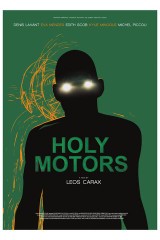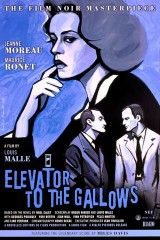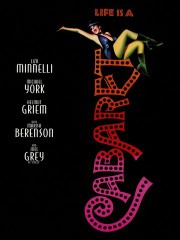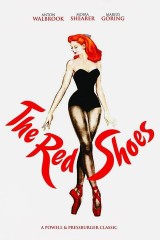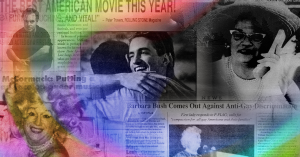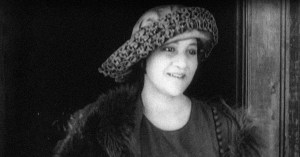Joe Wright’s Five Favorite Music Films
The director of Cyrano also talks about modernizing the classic story and the struggles of filming atop an active volcano.
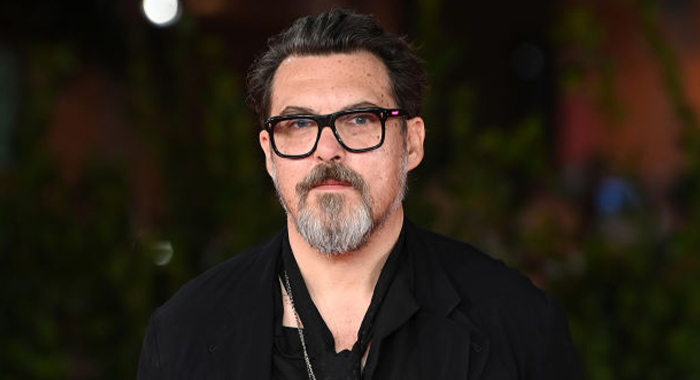
(Photo by Amanda Edwards/Getty Images)
After just a few years as a British television director, Joe Wright burst onto the movie scene with a new adaptation of Jane Austen’s beloved classic Pride & Prejudice in 2005. Though just his first stint in the director’s chair for a feature film, Pride & Prejudice garnered four Academy Award nominations and grossed over $120 million at the Global box office.
It was a promising start to say the least, but over the next two decades, Wright would hold on to his almost boyish fervor for cinema as he continued to make waves in the industry. From Best Picture-nominated films like Atonement and Darkest Hour, which finally won Gary Oldman a golden statuette, to his action classic Hanna and even a memorable run of perfume ads for Chanel starring his frequent leading lady Keira Knightley, Joe Wright has never lost an ounce of passion for his chosen profession.
It’s that passion that allowed him to stay focused during the more daunting production days of his latest feature, the first musical feature film adaption of Cyrano de Bergerac, Edmond Rostand’s timeless play. In this version, our protagonist Cyrano (Peter Dinklage), the love-struck soldier with the heart of a poet, also raps and sings to his unrequited love Roxanne (Haley Bennett), and Wright also employed the talents of Kelvin Harrison Jr., Ben Mendelsohn, and the music of the band The National to bring the dizzy and disarming war romance to light.
When we sat down with Wright last fall, he talked about his love of movie musicals and inventive music cues on film. Owing to his love of the medium and the fact he had already given us his Five Favorite Films a few years back, we asked him to come up with his Five Favorite Music Films instead. Below are his selections, an inventive mix of “proper musicals” alongside music-heavy films or ones with great musical pedigree (like a film score by legendary jazz musician Miles Davis, for example). We also chatted with the British-born director about bringing Cyrano to the big screen during a pandemic, going into a quarantine bubble in Sicily, and the torturous nine-day shoot he led at the foot of an active volcano.
Joe Wright’s Five Favorite Music Films
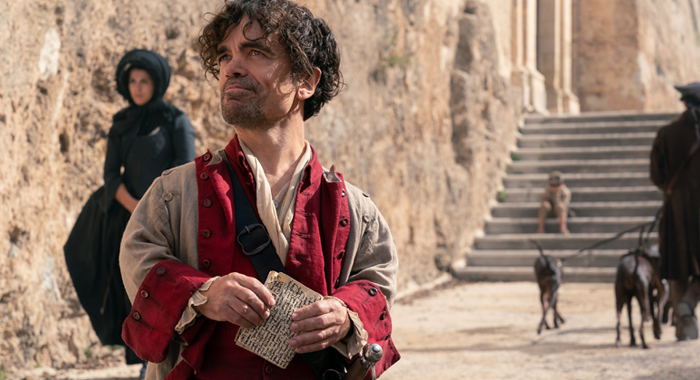
(Photo by Courtesy of MGM)
Jacqueline Coley for Rotten Tomatoes: This was a true labor of love that brought you halfway around the world, in the midst of COVID, to the top of an active volcano. Tell me about the long journey to get this project to theaters.
Joe Wright: That’s true. I had been developing the screenplay for a couple of years. I felt that the film deserved to be made because it was about compassion. In a world where I felt we were losing compassion for each other, I felt it was important to make. Then the pandemic happened, and having sat on my ass at home, not connecting with anybody for four months, I had gotten to the point where I felt the script was ready. June 28th, 2020, I called [producer] Eric Fellner and I said, “I think, I think I’m ready to go,” and he said, “You’re crazy. This is never gonna happen. The world is shut down.”
Did you even think that it was possible?
Wright: I asked Eric in that conversation then, “Just give us a percentage: How likely do you think it is that I can get this film made now?” And he said, “Five percent.” So, I was like, “Great, all right, I’ll take that five percent.” And we started going out to possible backers for the movie. I was, like, hustling, hustling, hustling. I got myself to Paris, I got myself all over the place. Eventually, I hooked up with Mike De Luca, who had recently become head of MGM, and he, amazingly, said yes. He said, “I believe in the future of cinema, and I’m gonna bet on the future of cinema, because if I don’t, I’m betting against it.” I found that to be an extraordinary statement, and I’m so grateful to him. Then I was like, “Oh, f–k. Now we’ve actually gotta do this.”
And the choice to film in a bubble in Sicily?
Wright: The first and most important choice we made was to shoot the film on the island of Sicily. We thought, “Where are we gonna be safe?” and an island in the middle of the Mediterranean seemed like possibly the safest place. So we all moved to Sicily! And we created a bubble of about 350 crew — actors, artists, extras, dancers — and it was like a little theater company. We kind of closed ourselves down into a bubble and we created this movie. And every day, we thought we were gonna get shut down, or we were just relieved to get through each and every day. It was a massive labor of love, and it was something that we just felt was really important, having been starved of human connection for all of those months, to make a film about the importance of human connection and the importance of telling those that you love that you love them before it’s too late.
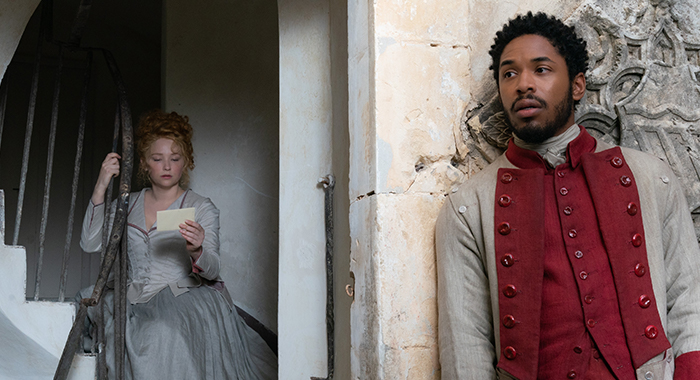
(Photo by Courtesy of MGM)
We covered the Cyrano premiere at the Telluride Film Festival, and it was so touching to see you hand Peter Dinklage the trophy for his tribute. Having seen the film, I can’t imagine anybody else playing this role. But was it that simple?
Wright: Haley [Bennett, who is also Wright’s partner] was doing a very rough workshop of the production at the 120-seater Goodspeed Theater. I went along, as I’d always loved the story of Cyrano, and there was Peter in this tiny theater giving this extraordinary performance. I was blown away by it. I thought, “This is a modern Cyrano. This is how he should be seen today. It’s no longer appropriate to have some handsome actor with a big fake rubber nose on his face.”
I asked Haley’s permission first (laughs) and she gave me her blessing to approach Pete and Erica [Schmidt, writer of the film and the stage musical]. So I did. They said, “Well, we’ve got this production happening off-Broadway,” and I said, “Yeah, yeah, yeah, you get on with that, and in parallel, we’ll develop the movie.” It’s a very different performance on film than it was on stage, simply because of the medium. The stage version was a lot more declamatory. There were some habits that he’d learned doing it on stage that we had to kind of strip away, and we found something much simpler and more intimate for the movie.
Peter and Haley were easy choices, naturally, and the choice to shoot in Sicily was clearly inspired, but please explain the choice to film atop an active Volcano?
Wright: (laughs) Yeah, that was an interesting choice. I do seem to set myself these crazy challenges. I never make life easy for myself, but I wanted some stark, visual contrast, from the honey-colored romance of the first part. Mount Etna and its black grit slopes seemed like the obvious solution. We chose to shoot the sequence at 16,000 feet above sea level. The air was very thin; you couldn’t really breathe properly upon these vertiginous slopes of black sand, so you just kept on sliding down the volcano. You couldn’t walk up there properly.
Plus we had been told it never snowed up there until February. So we were like, “Great! We’re shooting in December.” And then literally the week before we went up there to shoot, the heavens decided to dump two meters of snow on the volcano. It became something else visually entirely. I conceived it to be red coats against this black volcanic sand. And suddenly now, it was all white?
But it was exciting because we adapted. We had to rethink all of the blocking, the staging. We had to kind of reconceive the action completely, but everyone rose to it. It was probably the toughest nine-day shoot I’ve ever actually experienced. And then on the last day, the volcano decided to erupt. It hadn’t erupted in 30 years, but on the last day, it properly erupted, and we were getting lava spat on us. So we had to evacuate the volcano and run down the hill. (laughs) The people around there believed that the volcano is a kind of goddess. So I guess the goddess wanted us off her.
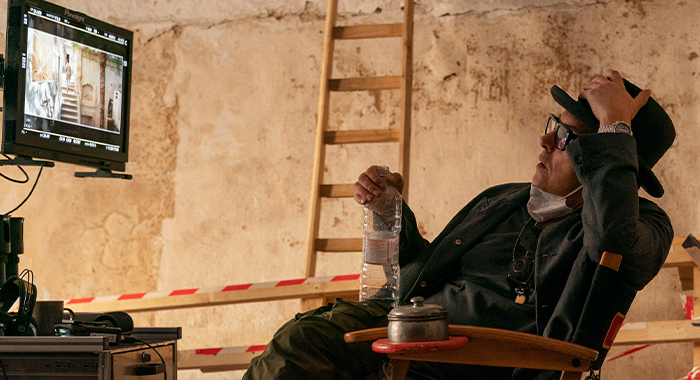
(Photo by Courtesy of MGM)
The story of Cyrano has been done hundreds of times, in various mediums: Theater, cinema, television, even graphic novels. For anyone who knows the story, what would you say is the most intriguing and unique touchpoint for your version?
Wright: I hope it’s a modern take on a classic. You’ve never seen Peter Dinklage play this role, and you’ve never seen him give such an extraordinarily heartfelt performance. Roxanne, who’s often been kind of two-dimensional soppy and frankly disrespected in the original, is a very, very different kind of Roxanne here. Kelvin Harrison’s performance is true and honest; Christian is oftentimes dismissed, so it is exciting to see someone of such emotional intelligence play that role. It’s a film that focuses on our desire to connect, or, as is often the case, our failure to do so.
Cyrano is in theaters on February 25th, 2022.
Thumbnail images by: ©Indomina, New Yorker Films, Everett Collection, ©Paramount Pictures

